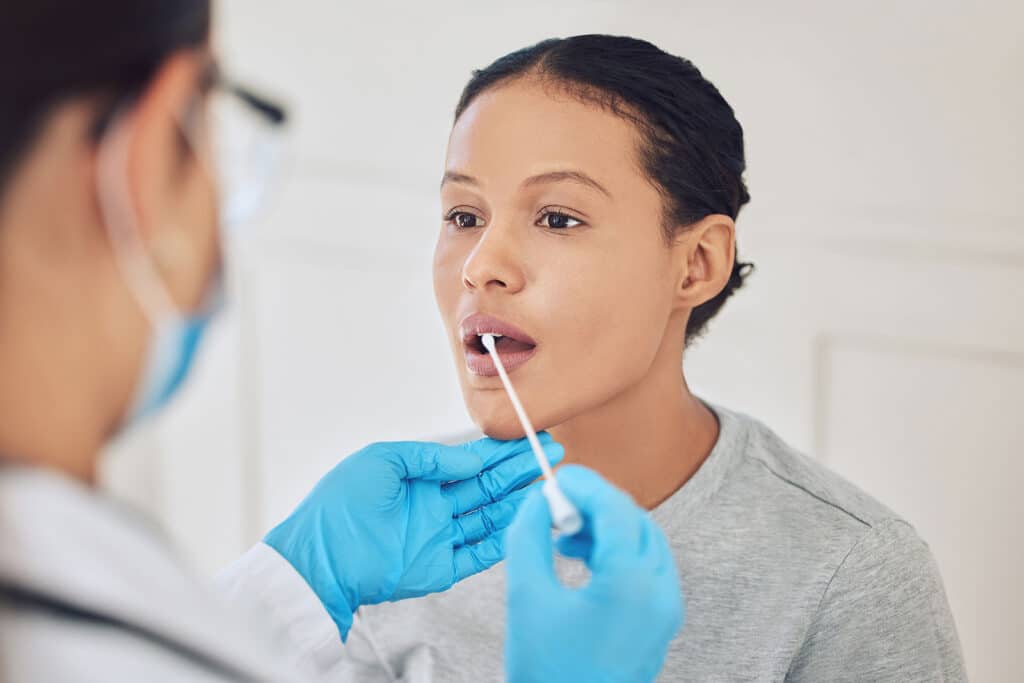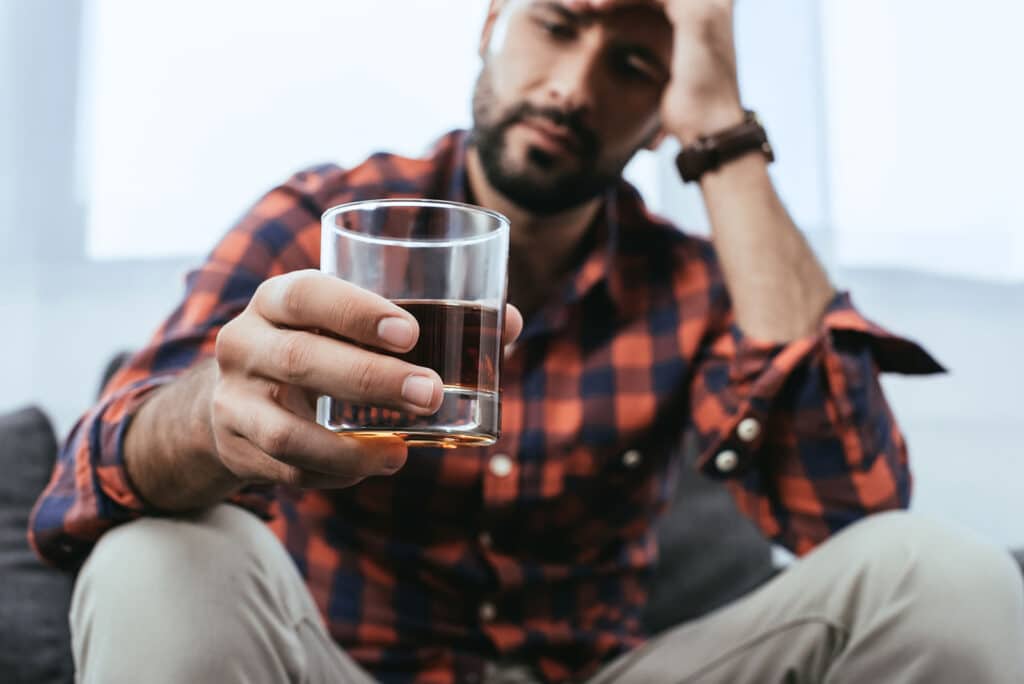Maybe you have to deal with an upcoming pre-employment drug screen. Perhaps you’re worried about roadside testing. Either way, now you’re left wondering how to pass a mouth swab test for THC.
Most oral fluid drug test kits are hard to tamper with. Your best bet is detoxing naturally or with professional assistance.
Read on to learn more about this screening method, the predicted detection windows, and your rights. We’ll also go over three common misconceptions regarding the test results.
THC Detection in Oral Fluid Explained
There are a lot of ways to detect marijuana use, and the most common one is urinalysis. Let’s start by taking a look at why some companies and authorities prefer mouth swabs over urine testing.
The Science Behind the Test
Unlike urine drug tests, mouth swab kits don’t detect cannabis drug metabolites of the active compound THC.
Instead, the swab kits look for THC itself in the saliva. This makes them better at detecting recent drug use.
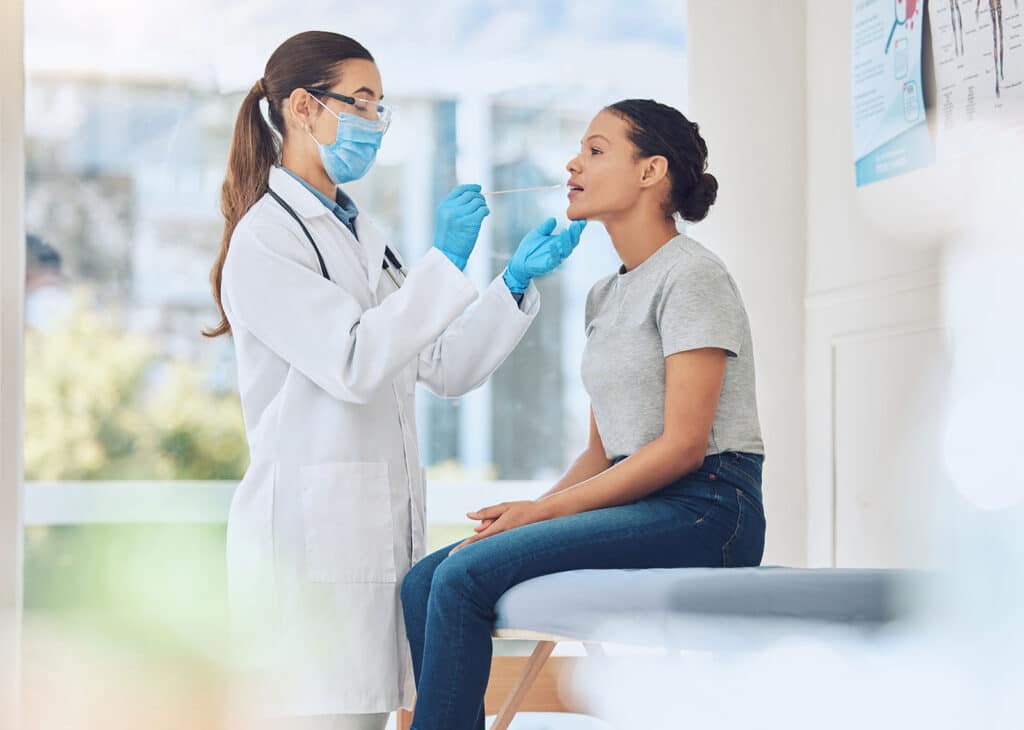
The Drug Detection Window
So, the oral test is good for recent cannabis intake, but how long can it detect the drug after the last use? Well, the length of time THC stays in your saliva depends on a number of factors, including:
- Dosing and Frequency of Use: The amount of THC consumed (rather than the perceived “high”) plays a role in the screening process.
- Strain and Quality: More potent weed strains can increase THC levels. Meanwhile, if the drug was “cut” with adulterants, it might not last as long.
- Kit Sensitivity: Not all oral fluid test kits are as susceptible to low THC concentrations.
That being said, THC transfers from the blood to the saliva soon after it’s ingested. And the drug residue remains there for as long as the compound is present in the bloodstream.
This means that the detection window starts at about an hour after ingestion and can last for 24 or even 48 hours after the last use.
Here’s how the detection times of THC compare to other illicit substances:
| Substance | Detection in Saliva (up to) | Detection in Urine (up to) |
| Heroin | Less than 24 hours | Less than 24 hours |
| Alcohol | 12–24 hours | 24–72 hours |
| Cannabis/marijuana | 24–48 hours | 30+ days in heavy use |
| Codeine | 24–48 hours | 4 days |
| Amphetamine | 2 days | 5 days |
| Methadone | 2 days | 2 weeks |
| Ecstasy | 2 days | 3 days |
| Cocaine | 3 days | 4 days |
| Oxycodone | 3 days | 4 days |
The Collection Site and Test Speed
If you’re doing the oral swab test as part of a pre-employment drug screening, you’ll likely be given one of two options: On-site testing or lab-based testing.
For an on-site fluid test, the whole process is done in one place, and the result is almost immediate. Test results from lab-based collections, however, can take a couple of days.
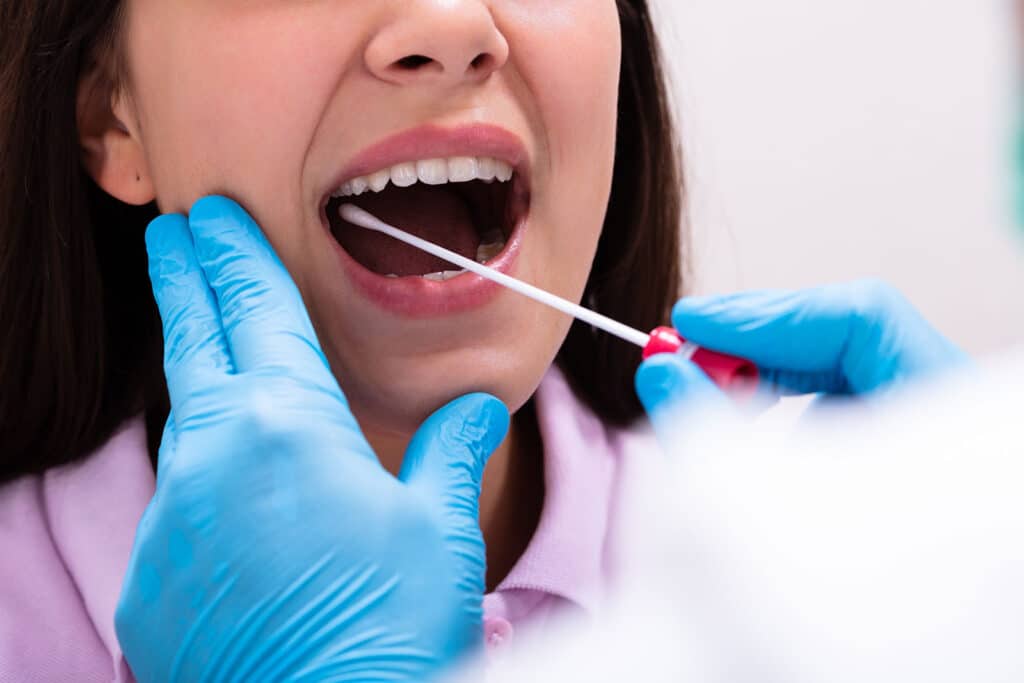
The Collection Procedure
While the exact process can change from one place to another, there are a few basic steps that most sample “collectors,” law enforcement agents, employers, or third parties adhere to.
Here’s what to expect:
- The person responsible for the sample collection will verify your identity.
- You might be asked to empty your pockets to guarantee that you’re not hiding anything that could taint the results.
- The collector will ask you to open your mouth. Then, they’ll start inspecting your oral cavity.
- If your mouth is dry, it’s okay to ask for water. Hydration can really boost saliva production.
- You’ll be instructed to abstain from eating or drinking anything for a 10-minute wait period before the collection. This way, pH changes won’t tamper with the test result.
- During the wait period, collectors will explain the process to you, and you’ll remain under observation the whole time.
- The collector will then open a sealed swab package and inspect it for defects.
- If everything looks good, they’ll take the sterilized swab and put it in your mouth to collect the saliva sample.
- The collector will place the swab in a collection container and send it to be analyzed.
The Test Accuracy
The results from oral swabs are highly accurate. One study found that the oral fluid drug test has a false positive rate of 3–7% for drugs like opioids, cocaine, methamphetamine, and cannabis.
The Main Perks (For Both Collectors and Donors)
Taking any drug test can be unnerving, but the mouth swab can be better than other options. For instance, it’s not as painful or as invasive as a blood test. It’s also less of an embarrassment and privacy invasion than urinalysis.
For the employer, the swab test is a good drug screening option because it’s quick, straightforward, and relatively inexpensive.
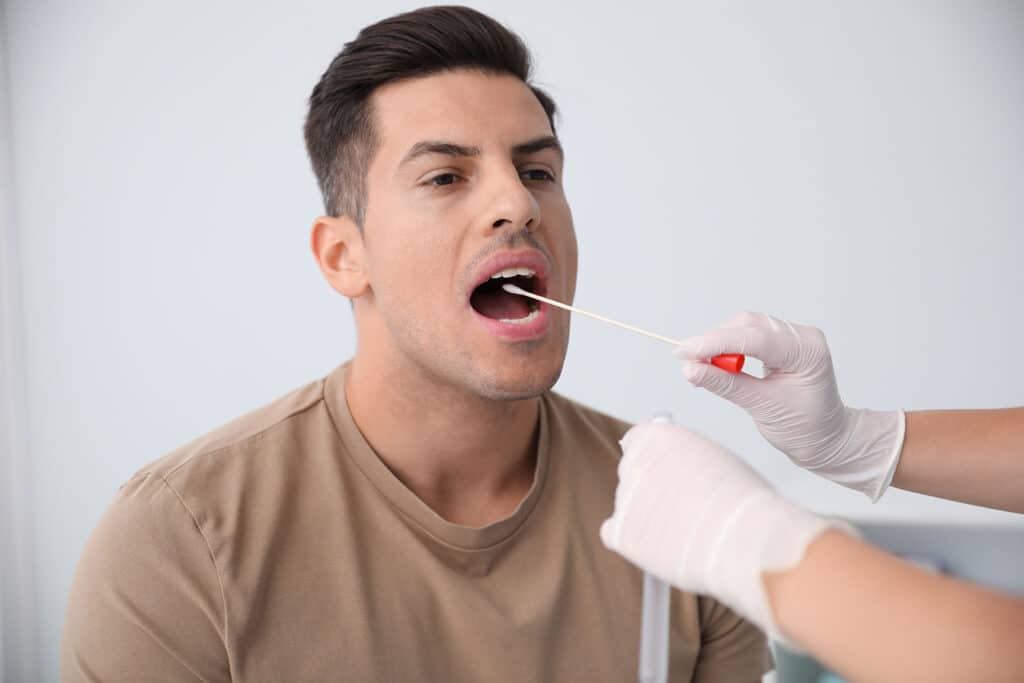
3 Common Myths About Passing an Oral Fluid THC Drug Screen
There are lots of misconceptions out there regarding THC detection in saliva. Here are three common myths:
1. Good Oral Hygiene Alone Can Help You Pass the Oral Swab Test
You might hear people saying that detox mouthwashes help pass a mouth swab drug test. Some use store-bought products, while others recommend gargling with home remedies for quick THC detoxification. Chewing gum is also a popular option.
However, all these tactics can be misleading.
A comparative study looked into the effect of different mouth rinses on the saliva THC screening. The results showed that while mouthwashes could technically reduce the drug concentration, the residual amount was still higher than the test cut-off.
2. Cheating on an Oral Drug Test is Just as Easy as on a Urine Test
Saliva drug tests are mostly adulteration-proof for a number of reasons.
For one, the sample “donor” is under observation from the moment they step into the collection site and all the way until the procedure is complete. This way, cheating or tampering with the sample is that much harder.
In urine testing, however, this sort of full observation would be considered an invasion of privacy. Someone could try to substitute their own urine with a clean, synthetic sample. They might even try to dilute the THC metabolites in the sample by drinking plenty of water before the test.
Side Note: Even in urinalysis, drinking water won’t necessarily flush THC from your body. So, faking a negative result on the drug test isn’t easy, either way.
3. Passive Smoke is an Acceptable Excuse
Some people try to rationalize a positive result by claiming that it’s from just second-hand smoke.
In reality, getting a positive result on an oral swab from passive inhalation isn’t likely. Even under extreme exposure conditions, the THC concentration in oral fluid might not meet the standard cut-off points.
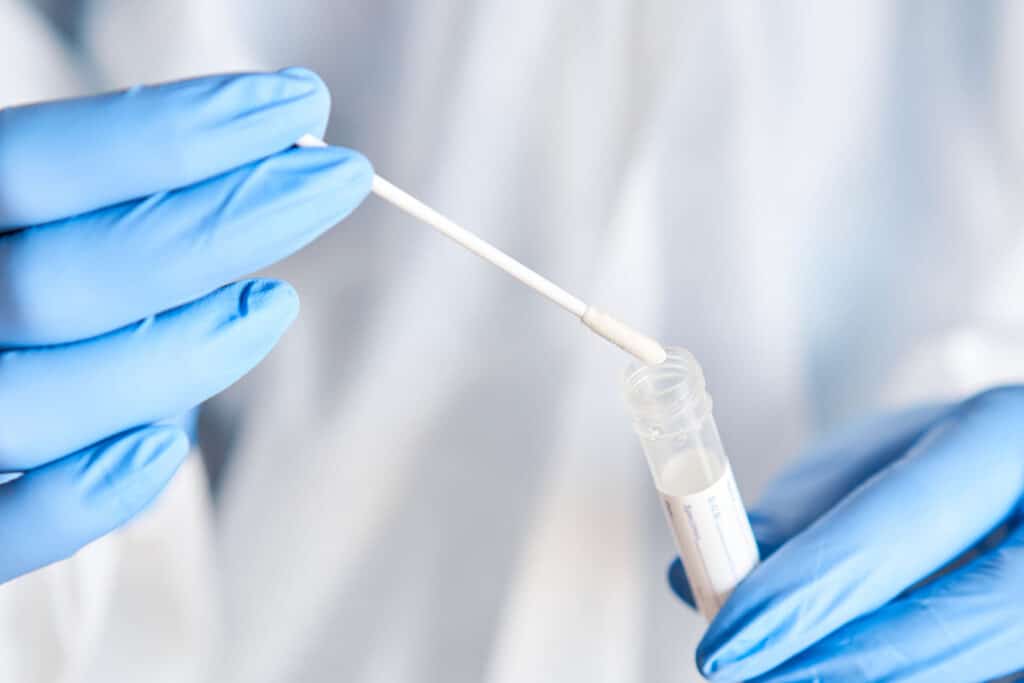
Know Your Rights: 3 Core Legal Aspects of Oral THC Testing
Regardless of whether you think the swab is going to come back positive or not, it’s always a good idea to know your rights.
1. Oral Fluid Testing Laws Vary by State
Not all states allow testing for drugs using a saliva swab. Even if they’re allowed, there might be regulations and restrictions in place.
Familiarize yourself with the local laws before consenting to the drug test.
2. You Can Take Time off and Seek Professional Help
A swab test kit revealing that you have a substance use disorder (SUD) doesn’t have to be a dead end. Recovery is still possible, and your career doesn’t have to suffer because of it.
Under the federal Family Medical Leave Act (FMLA), you’re protected from job loss if you seek addiction treatment.
Whether you’re opting for an inpatient or an outpatient program, you might still be eligible. The treatment needs to be provided by healthcare professionals.
FMLA doesn’t just apply to the patient suffering from the SUD, either. A loved one can also take time off to support you during your recovery journey.
3. You Deserve a Second Chance in Your Professional Life
Once you take a step towards rehabilitation, you don’t have to worry about future employers denying you a job just because you have a history of substance abuse.
The Americans with Disability Act (ADA) protects patients in recovery from discrimination. This means that no boss can hold the old positive THC swab result or the rehab admission against you as long as you’re rehabilitated or at least currently participating in a rehabilitation program.

Get Help With Your Marijuana Dependency Today
Drinking too much water and trying to swish different mouthwashes around isn’t the answer.
If your weed use is becoming a strain on your personal and professional lives, it might be time to tackle the problem at the root and consider treatment. Realizing that you have a problem is the first step, and the next step is seeking the help you need.
For some people, medical detox is the way to go. The round-the-clock personalized care and mental health services can make the process much easier.
Don’t hesitate to get in touch with the Recreate Behavioral Health Network team for more information about marijuana use disorders.





